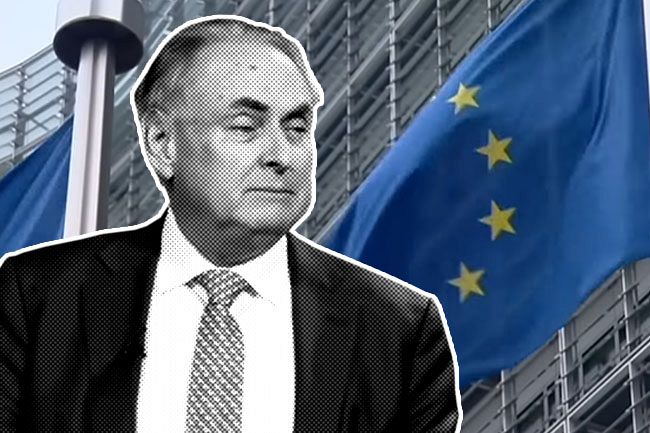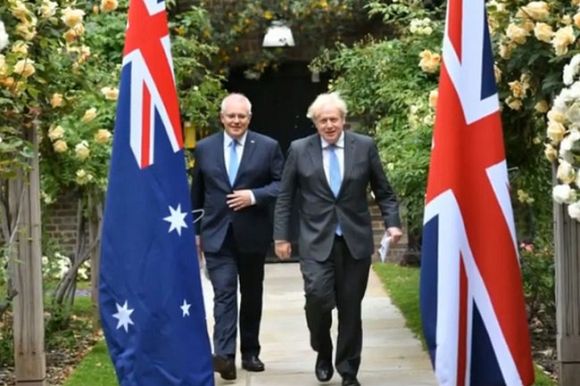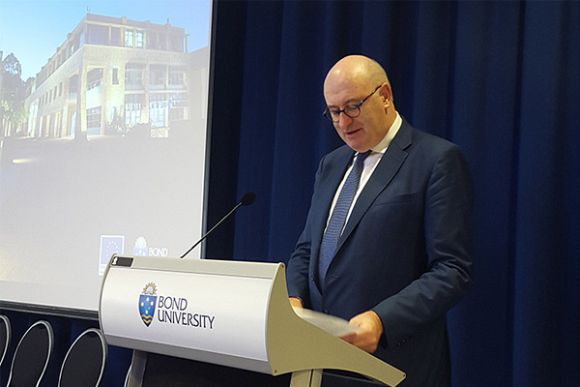The EU has shown that “hard bargaining” does not work, but the Australian Government hasn't learnt any lessons from the UK’s failed Brexit negotiations, writes Alexandra Snow.
NEGOTIATIONS BETWEEN the European Union (EU) and Australia have hit a major roadblock, with a deal now said to be years away. The EU hardballed the UK following the Brexit vote and it looks like Australia’s negotiations are going the same way.
Australian Trade Minister Don Farrell has been leading the charge in talks with EU representatives on the Free Trade Agreement that has been in the works since 2018. It was hoped that the negotiations, currently happening on the sidelines of the G7 trade summit in Osaka, would finally see a resolution.
Yet, the deal has fallen flat, with conflicts still remaining regarding Australian agricultural exports and European geographical indicators.
Farrell expressed his frustration in a statement, saying:
‘Unfortunately, we have not been able to make progress. Negotiations will continue and I am hopeful that, one day, we will sign a deal that benefits both Australia and our European friends.’
The EU is an imperative market for Australia. It is Australia’s third largest two-way trading partner, ahead of the U.S. If the Free Trade Agreement can be settled, it will allow for a market of 446 million people for Australian businesses to trade with.
Murray Watt, Australian Agricultural Minister, said Australia had been prepared to make some concessions, but said the EU had “not budged significantly from the offer it put forward three months ago”.
But a spokesperson for the European Commission said to Politico:
“The Australian side re-tabled agricultural demands that did not reflect recent negotiations and the process between senior officials.”
With neither side willing to budge, it’s not hard to see the familiarities with how the Brexit discussions turned out. Post-Brexit Referendum, the Conservative Government drew strict “red lines” in what it would give up to the EU. This “hard bargaining” tactic did not work with the EU and resulted in the inability to come to a deal and led to the resignation of the UK Prime Minister.
Timing is no longer on Australia’s side. With the EU going into election season, Farrell will now have to park any negotiations until at least July next year. The journey to get the Free Trade Agreement through began in 2018 but was abruptly halted after the Morrison Government shocked France by cancelling a submarine contract, in favour of the AUKUS arrangement.
Prime Minister Anthony Albanese promised to get the negotiations back on track when he came to office. However, the negotiations failed again in July, when Australia accused the EU of not acknowledging the population's strong familial ties to Europe, regarding European branding protections.
The consistent tug-of-war between the EU and Australia is almost a reflection of the UK batting with the EU to come to any formal agreements post-Brexit. The UK’s overstated perceptions of its own capability, coupled with rigidity on its ideal deal, led to months of stalemates and soured relationships.
The EU bloc has significantly more bargaining power on the world stage compared to Australia and yet Australia persists with this hardline strategy. It’s ill-suited to any genuine resolution and if they want to pass a Free Trade Agreement, they should look to not repeat the same mistakes the UK made during the Brexit negotiations.
Alexandra Snow is a Politics and International Relations graduate from the University of Warwick (UK), with a focus on UK and Australian politics.
Related Articles
 This work is licensed under a Creative Commons Attribution-NonCommercial-NoDerivs 3.0 Australia License
This work is licensed under a Creative Commons Attribution-NonCommercial-NoDerivs 3.0 Australia License
Support independent journalism Subscribe to IA.













